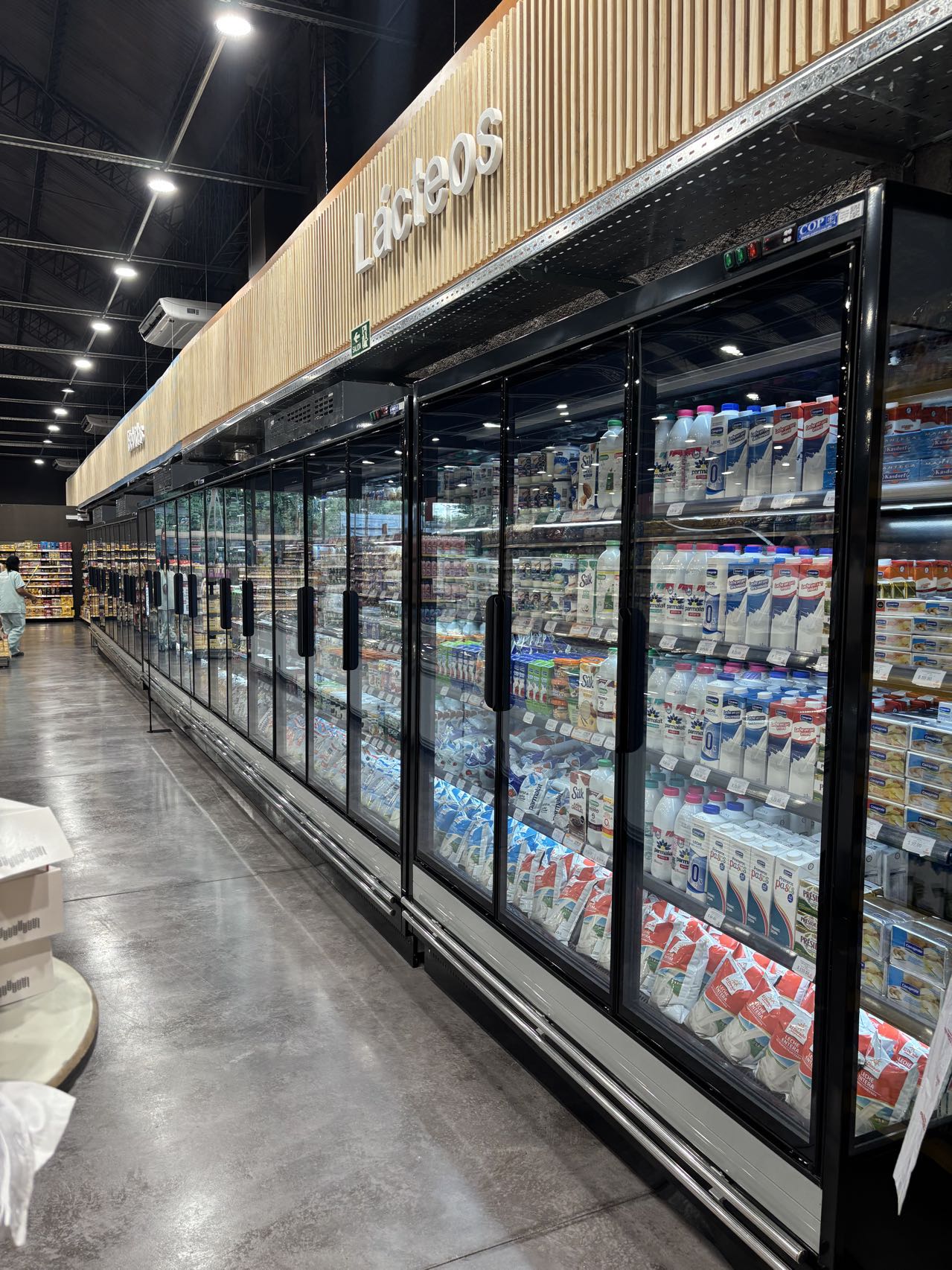In today’s global market, refrigeration equipment plays a critical role in industries ranging from food storage and retail to pharmaceuticals and logistics. For B2B buyers, including supermarkets, cold storage operators, and equipment distributors, selecting the right refrigeration solution is not just about temperature control—it’s about ensuring energy efficiency, product safety, and operational reliability in a competitive business environment.
The Importance of Modern Refrigeration Equipment
Refrigeration technology has evolved from simple cooling systems to intelligent, energy-efficient networks that maintain optimal conditions across production, transportation, and sales. Reliable refrigeration equipment ensures consistent temperature management, minimizes waste, and supports sustainability goals.
Key Benefits for Industrial and Commercial Users
-
Product Preservation: Maintains product integrity across the entire cold chain.
-
Energy Efficiency: Modern compressors and eco-friendly refrigerants significantly reduce operating costs.
-
Regulatory Compliance: Meets global food safety and pharmaceutical storage standards.
-
Operational Reliability: Continuous temperature monitoring prevents costly downtime.
-
Sustainability: Green refrigeration systems reduce carbon footprint and energy waste.
Main Types of Refrigeration Equipment for B2B Applications
Every industry requires specific types of refrigeration systems to suit its operational needs. Below are the most commonly used categories:
1. Commercial Refrigerators and Freezers
-
Used in supermarkets, restaurants, and convenience stores.
-
Include upright refrigerators, display coolers, and under-counter freezers.
-
Designed for accessibility, visibility, and energy savings.
2. Cold Storage and Walk-in Freezers
-
Essential for large-scale storage in food processing, logistics, and pharmaceuticals.
-
Maintain stable temperature and humidity for extended preservation.
-
Can be customized for warehouse or modular installations.
3. Refrigeration Condensing Units
-
Provide core cooling power for cold rooms and industrial applications.
-
Equipped with advanced compressors, condensers, and fan motors.
-
Available in air-cooled or water-cooled designs.
4. Display Refrigeration Systems
-
Combine cooling performance with product presentation.
-
Commonly used in retail, supermarkets, and bakeries.
-
Include open chillers, serve-over counters, and glass-door showcases.
5. Industrial Cooling Systems
-
Used in manufacturing and production lines requiring process cooling.
-
Offer high-capacity, continuous operation with precise temperature control.
How to Choose the Right Refrigeration Equipment Supplier
When sourcing refrigeration equipment for business operations, B2B buyers should consider both performance and lifecycle cost:
-
Cooling Capacity & Temperature Range – Ensure equipment matches your product’s storage needs.
-
Compressor Technology – Inverter or scroll compressors improve efficiency and stability.
-
Refrigerant Type – Prefer eco-friendly gases like R290, R600a, or CO₂.
-
Material and Build Quality – Stainless steel and corrosion-resistant components extend durability.
-
After-Sales Support – Reliable suppliers offer installation, training, and technical maintenance.
The B2B Advantages of Advanced Refrigeration Equipment
-
Reduced Energy Costs: Smart control systems and LED lighting minimize energy waste.
-
Product Quality Assurance: Maintain precise temperature consistency across operations.
-
Flexible Customization: OEM/ODM options available for specific commercial or industrial projects.
-
Long-Term ROI: Durable and efficient designs reduce maintenance and replacement costs.
Summary
Investing in high-quality refrigeration equipment is essential for any business operating within the cold chain. From supermarkets to industrial warehouses, advanced cooling systems not only preserve product integrity but also improve energy efficiency and sustainability. For B2B partners, working with a reliable refrigeration equipment manufacturer ensures dependable performance, technical support, and a competitive advantage in the evolving global marketplace.
FAQ
Q1: What industries use commercial refrigeration equipment the most?
Industries such as food retail, cold storage, pharmaceuticals, hospitality, and logistics rely heavily on advanced refrigeration systems.
Q2: Can refrigeration equipment be customized for specific applications?
Yes. Many manufacturers offer OEM/ODM customization, including temperature range, design layout, and energy management systems.
Q3: What is the best refrigerant for energy-efficient cooling?
Natural and eco-friendly refrigerants like R290 (propane), CO₂, and R600a are recommended for sustainability and regulatory compliance.
Q4: How often should commercial refrigeration systems be serviced?
Routine maintenance every 6–12 months ensures optimal efficiency, prevents leaks, and extends the system’s lifespan.
Post time: Nov-11-2025





